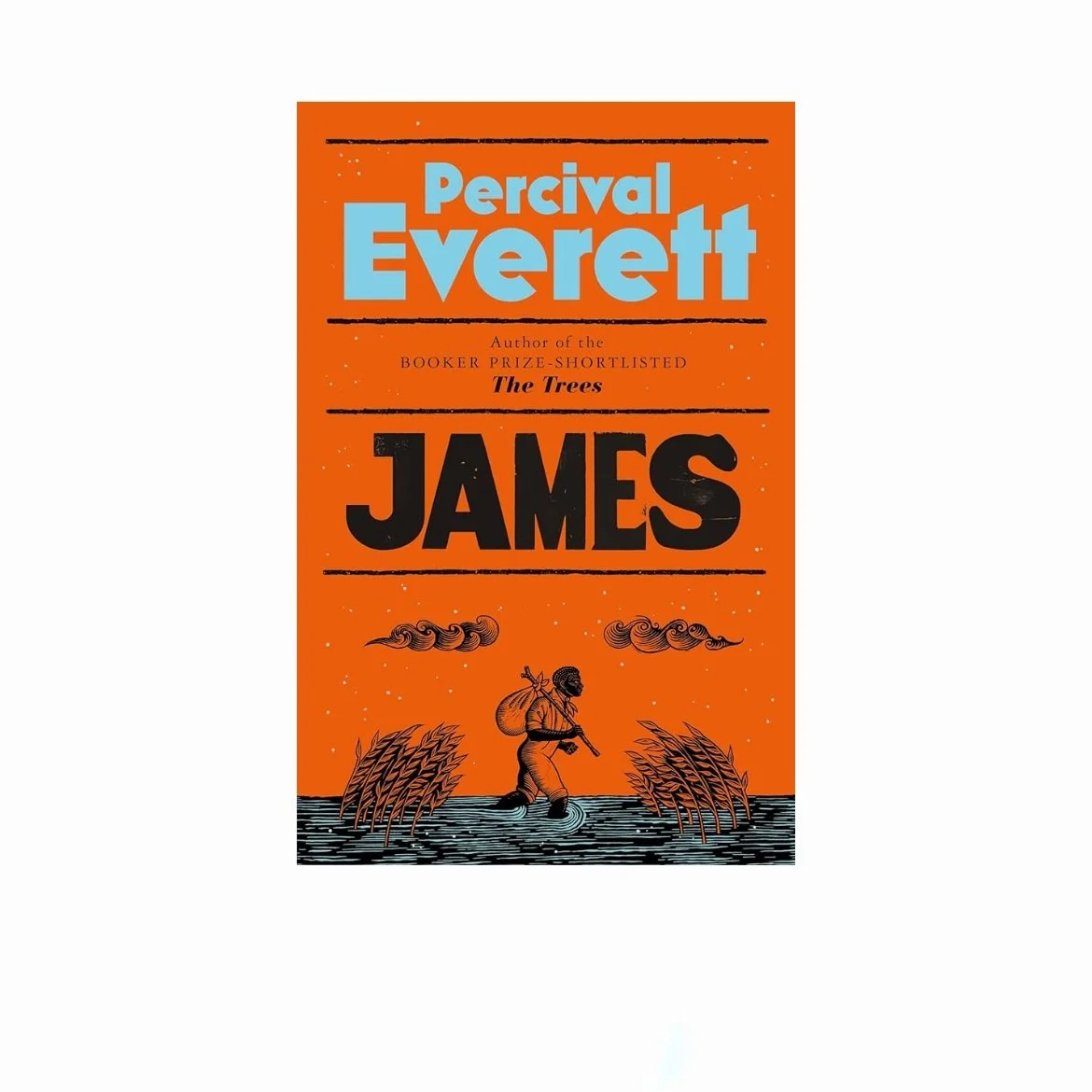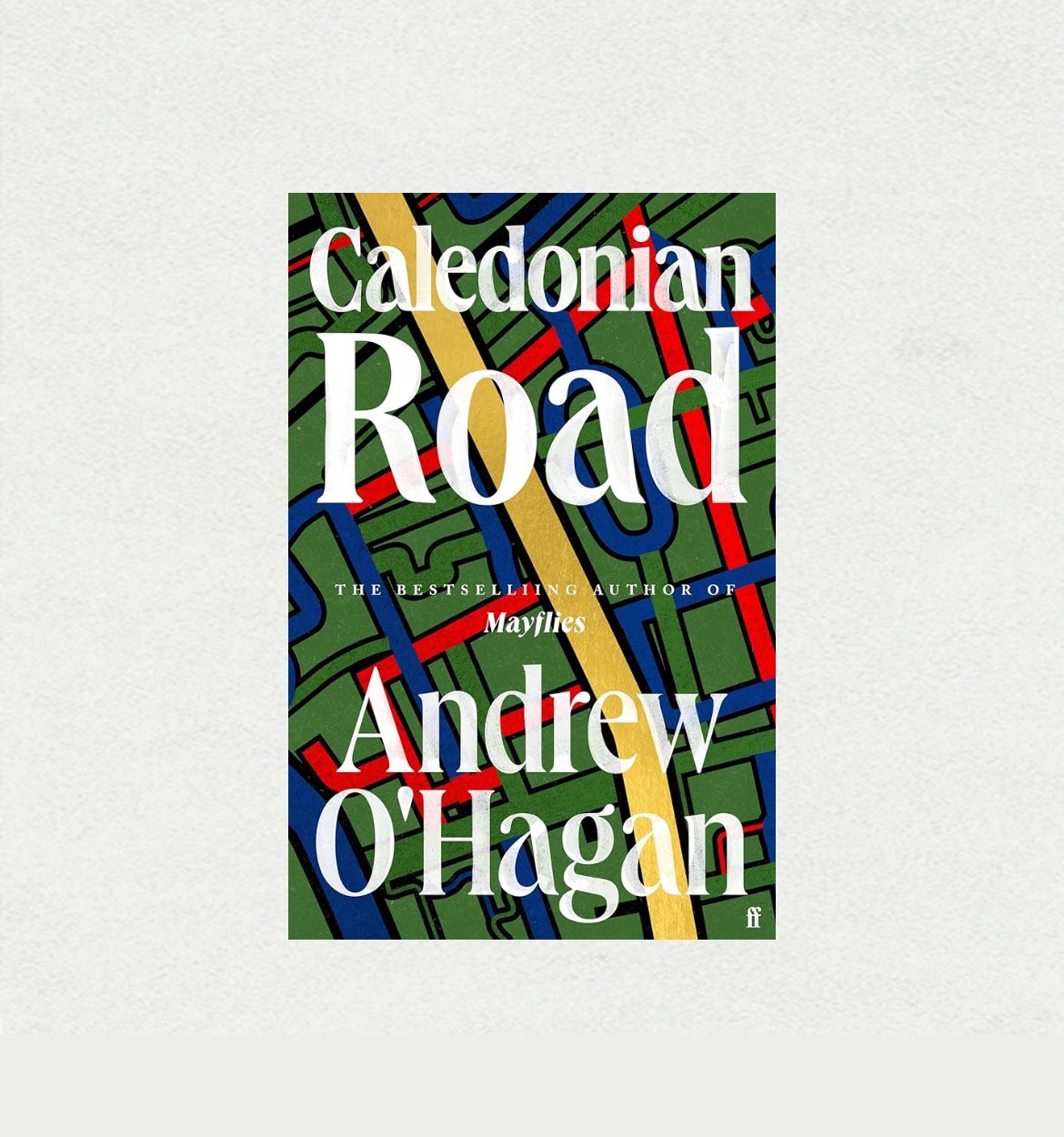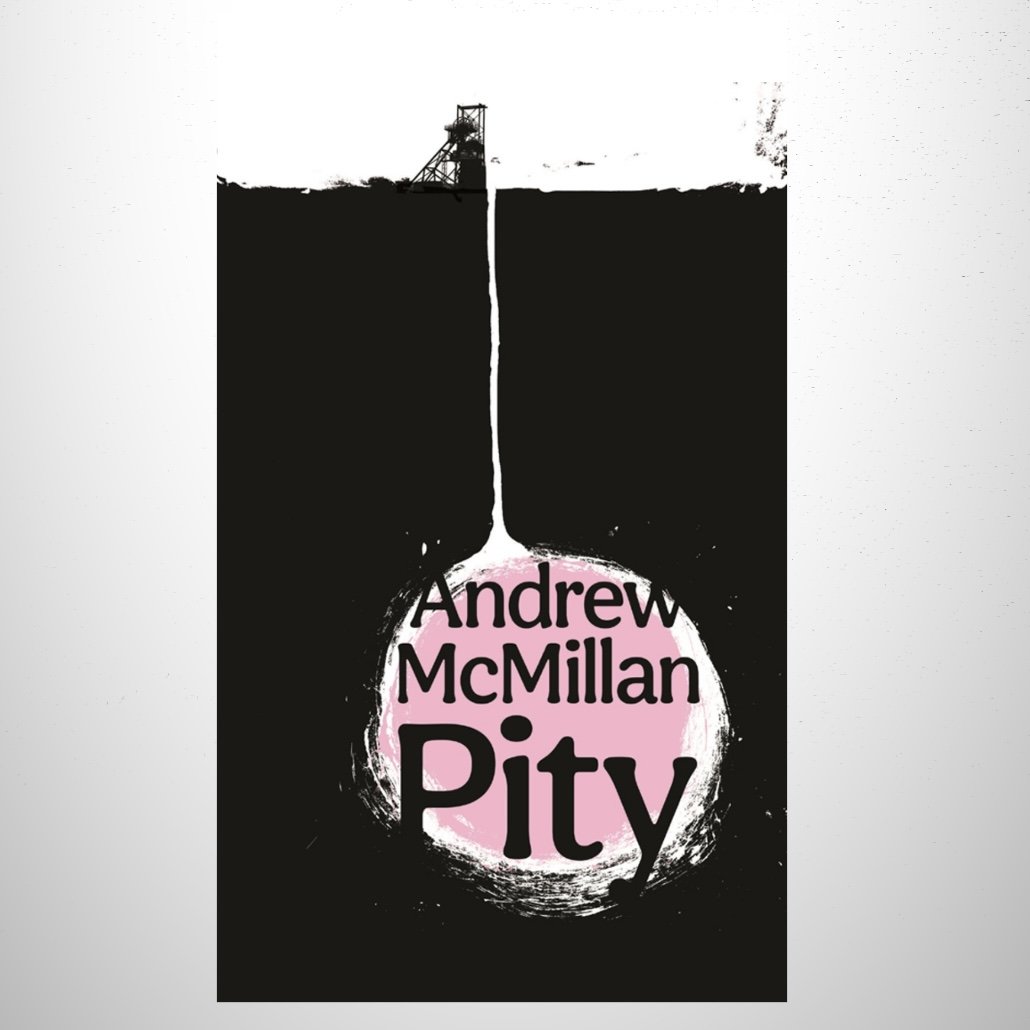
James (2024)
James is, in its simplest sense, a retelling of Mark Twain's classic The Adventures of Huckleberry Finn, from the perspective of the slave Jim. The original is loved and criticised (particularly around its complex handling of race relations) in equal parts, and Everett engages with it with a similar mix of obvious love for the source material and a clear sense of purpose in its interrogation of some of its more problematic aspects.
Pew (2020)
Pew introduces us to a fairly unique character: nameless, of indeterminate age, gender and race, seemingly mute and amnesiac. They are named Pew by a family who find them sleeping on a church pew (as others have commented: in the manner of naming a pet). Pew's origins and identity are shrouded in mystery, and the Christian Bible Belt community they find themself taken in by is determined to solve that mystery. Alongside this, there is something strange going on in a nearby town, with its own community engaging in protests in the face of a spate of 'disappearances' of young people. In Pew's own town, it's the week of an annual 'festival' which sounds more and more sinister as we learn more about it.
Fire Weather (2023)
Fire Weather: A True Story from a Hotter World (to give it its full title) centres on the 2016 Fort McMurray wildfire. The fire ravaged the hub of Canada’s oil industry, in remote Alberta, destroying thousands of homes and buildings and driving 90,000 people to evacuate in a single afternoon. This story is told in depth, using extensive testimonies and analysis of contemporary sources from residents, journalists, oil workers and journalists to piece together an almost minute-by-minute narrative of the development of a fire of never-before-seen magnitude. Around this story, though, Vaillant includes lengthy digressions - some necessary and illuminating, others more tangential but always interesting
Help Wanted (2024)
Help Wanted takes place in a large chain "big-box" store in upstate New York, and shifts focus between the employees of its "Movement" (aka Logistics) team as they race to complete their repetitive tasks in the early hours of the morning, snark about their awful middle-manager Meredith, and eventually plot to attempt to have her replaced.
How to Make a Bomb (2024)
How to Make a Bomb was initially published last year in the US under the somewhat less provocative title Dartmouth Park. It’s a short novel, written in a sparse poetic style, eschewing paragraphs in favour of short sentences with line breaks and limited punctuation. Its focus is the fifty-year-old London-based historian Philip Notman, who is thrown into a deep personal crisis following a trip to a conference in Bergen. On his return he begins to struggle to pick up with his everyday life, and abandons his wife and (adult) son to head off in search of… something. Initially it seems that that something may be an affair, with the captivating Ines, who he met at the Bergen conference and initially seeks out in Cadiz. Yet relatively soon he is on the move again, this time to Crete to spend time in the dilapidated house of an older couple he helped out in Spain. He arrives seeking fulfillment of a different kind, away from the noise of modern life, and is further tempted by the allure of religion on a visit to a monastery. When all of this ultimately fails to resolve his issues, he heads back to London with a new sense of purpose, and a rather disturbing mission.
The Book of Form and Emptiness (2022)
The Book of Form of Emptiness centres on Benny Oh, a young Canadian adolescent who has recently lost his father, the Korean-Japanese jazz musician Kenji, and now lives with his mother Annabelle. It is told by turns from the persepectives of a book (“the book”) and Benny himself, who debates with the seemingly autonomous book as it develops. Following the loss of his father (who was killed by a truck carrying live chickens as he lay passed out following a night smoking marijuana with his jazz band) Benny begins to hear voices in everyday objects. While initially harmless enough, following an incident with a pair of scissors who want him to stab his teacher, Benny is sent to a youth mental health facility. Meanwhile, Annabelle is struggling with the decline of her profession as a media monitoring researcher, and demonstrating (to Benny’s dismay) increasing tendencies towards hoarding.
Caledonian Road (2024)
Caledonian Road is set largely on and around the titular thoroughfare, which heads northwards from near London’s King’s Cross station. Its action takes place in the very recent past, in a year’s period between early 2021 (and the ending of major Covid restrictions) and early 2022 (with Russian’s invasion of Ukraine on the imminent horizon). It’s introduced (at least in this pre-release version) by an extensive list of characters, setting the tone for the sprawling, somewhat Dickensian nature of the 600-ish pages to follow. At its undoubted centre, though, is the aging white liberal academic Campbell Flynn, clearly something of a proxy for the author. Having worked his way up in society from humble Glaswegian roots, through a combination of academic achievement and marriage into minor aristocracy, Campbell is a lecturer at UCL, a published art historian (most recently of an acclaimed life of Vermeer), sometime glossy magazine columnist and podcaster. Yet he senses shifting sands in society, and mostly the ones that uphold everything that he holds dears. Campbell, like the liberal intelligentsia he represents, is in crisis. And so, it seems, are his city and his country.
Fast By The Horns (2024)
Fast By The Horns is set in the Bristol neighbourhood of St. Pauls in 1980. It focuses on Jabari, the 14-year-old only son of the Rasafarian community leader Ras Levi. He exists in a clearly very close-knit community, but one that is constantly beaten down by corrupt policing and lack of council investment. Ras Levi and his fellow Rastafarians in the community, including of course Jabari, dream of repatriation to the Ethiopian motherland, though others in the community mock their ambitions and urge them to engage with the political realities of life in the UK. Amidst the violence and daily struggles with police brutality, Jabari's encounter with a young girl formerly from St. Pauls, who we find has been placed in the care of a white family in a neighbouring affluent area, provides a tender and emotional thread at the centre of the novel.
The Poisonwood Bible (1998)
The Poisonwood Bible follows the Price family, led by the missionary preacher Nathan, as they move from their home in Georgia in the US to the small village of Kilanga in what was then the Belgian Congo. While it is Nathan’s vocation that takes the family to Africa, the novel is told from the perspective of the five women of the family: the mother Oreleanna, who narrates from a retrospective position, later in life, and the four daughters of the family.
Martyr! (2024)
Martyr! introduces us to Cyrus Shams, a recently sober son of Iranian immigrants (and evidently an autobiographical proxy for the author). As a child he moved to the US following the loss of his mother when her plane (Iran Air Flight 655; based on a real incident) was shot down over the Persian Gulf by US forces. His father, who made his way in the States as a factory farm worker, has also died, leaving Cyrus seeking meaning initially in narcotics but subsequently in poetry.
Pity (2024)
Pity is a short novel that trains its eyes on the former mining town of Barnsley, near to Sheffield in northern England. It focuses on three generations of the same family, covering the late twentieth century up to the present day (or thereabouts), and almost exclusively focusing on the men of the family.
Piranesi (2021)
Piranesi is a fantasy novel set largely in an imaginary ‘House’, composed of seemingly infinite halls filled with unique statues. Its basement level contains an ocean, teeming with sealife, and its upper level clouds, giving it its own weather system as well as an array of birds. Other than this, its only inhabitants seem to be the titular character ‘Piranesi’ (though he knows this not to be his real name) and a mysterious ‘Other’ who Piranesi meets a few times a week. Piranesi believes himself to have always lived in the House, has no awareness of a world outside of its existence, and believes the only humans ever to have existed to have been himself, The Other, and fifteen sets of skeletal remains he has cataloged in his extensive travels through the halls.
The Fraud (2023)
The Fraud is a historical novel set across the nineteenth century and focusing on two apparently disconnected real-world storylines. One is the story of the Tichbourne Claimant, one of the longest trials in British legal history in which a butcher in Wagga Wagga, Australia comes forward claiming to be the presumed-dead minor British aristocrat Sir Roger Tichbourne. The other is the story of forgotten British novelist William Harrison Ainsworth, who mixes with a literary milieu including the likes of Dickens and Thackeray, has early-career success with ‘scandalous’ novels, one of which outsells Oliver Twist, but by the bulk of the novel’s story has fallen on tougher times and is something of a critical laughing stock.
Hamnet (2020)
Hamnet is a creative imagining of the story of the death of Shakespeare’s only son. Despite its title, it focuses predominantly on the bard’s wife, here called Agnes (pronounced Ann-yis, and as named in her father’s will) though typically better known as Anne Hathaway. It’s a non-linear narrative with its substantial first section moving back and forth in time between the events leading up to Hamnet’s death from the bubonic plague, and the early days of William and Agnes’ relationship, covering the birth of their three children, first Susanna, whose conception leads to their marriage, and later the twins Judith and Hamnet.
Western Lane (2023)
Western Lane follows Gopi, an 11-year old British-Indian Jain girl living in suburban London in the 1980s, who has recently lost her mother. Alongside her two older sisters, she is left in the care of her Pa, who is clearly also struggling with grief despite a seeming lack of emotional empathy and uncommunicative nature. Both Gopi and her Pa channel their grief into an obsession with squash, training at the titular Western Lane centre where Gopi meets Ged, a white boy with whom she becomes quietly infatuated, and his mother, with whom Pa finds a connection.
Study for Obedience (2023)
Study for Obedience is something of a difficult one to summarize. It’s a short book but in no senses a simple one. The unnamed female narrator arrives in an unnamed Northern European country (seemingly Scandinavian or Baltic), to tend to the needs of her successful oldest brother. Her own background seems fairly obviously Jewish, a fact that inspires hatred in the local residents, seemingly in part down to their past as collaborators (at least) in major atrocities (most probably the Holocaust, though it isn’t specifically named) against her people. Various troubles in the town, largely involving death of or disruption to local pets and farm animals, are attributed by the locals to her, and she is avoided, feared, and seemingly plotted against by the residents. With her brother frequently away on business, and she unable to speak the language, the whole thing has a fairly dense layer of mystery about it.
If I Survive You (2023)
If I Survive You is a mostly linked short story collection, based on the immigrant experience of a Jamaican family who moved to Miami following the turbulence in their home country in the 1970s. For much of the book, our focus is the somewhat autobiographical-seeming life of Trelawny, the family’s younger son, though we do also get stories told from the perspective of his father, his older brother Delano, and in the biggest departure of the collection, his cousin Cukie. The book deals with the struggle of survival in the face of everyday racism in the US, exacerbated by crises both personal and national - the latter including the major (and disproportionately racialised) impact of Hurricane Andrew and the 2008 Financial Crisis.
Pearl (2023)
Pearl tells the story of Marianne, a young mother who is reflecting on the loss of her own mother, who disappeared (presumed dead) when she was eight years old. Left with her father Edward and baby brother Joe, she has spent her life struggling to understand her mother’s motives, grieving both for her mother and for the family home which they had to abandon in the wake of her loss.
Prophet Song (2023)
Prophet Song focuses on Eilish, a microbiologist and mother of four (ranging in age from a baby to a seventeen year old) living in Dublin. In the background is the looming threat posed by a new authoritarian government in Ireland. Her husband Larry is an official in the Teachers’ Union, at the start of the novel still absorbed in his work and organising protests against the new government, believing the protections he has been used to in a democratic society still apply. Relatively rapidly, though, we learn that this is a new and significantly darker world, in which protests are violently suppressed and Larry himself is taken in for questioning by the stasi-esque Garda National Services Bureau (GNSB). Within days, he has disappeared, along with many other men in Eilish’s immediate circle.
The Bee Sting (2023)
The Bee Sting is something of an epic at 600+ pages, focusing on a fairly affluent family in small-town Ireland, in the aftermath of the 2008 Financial Crash. It's a novel of perspectives, with its lengthy first four sections each seen through the eyes of a different family member.




















